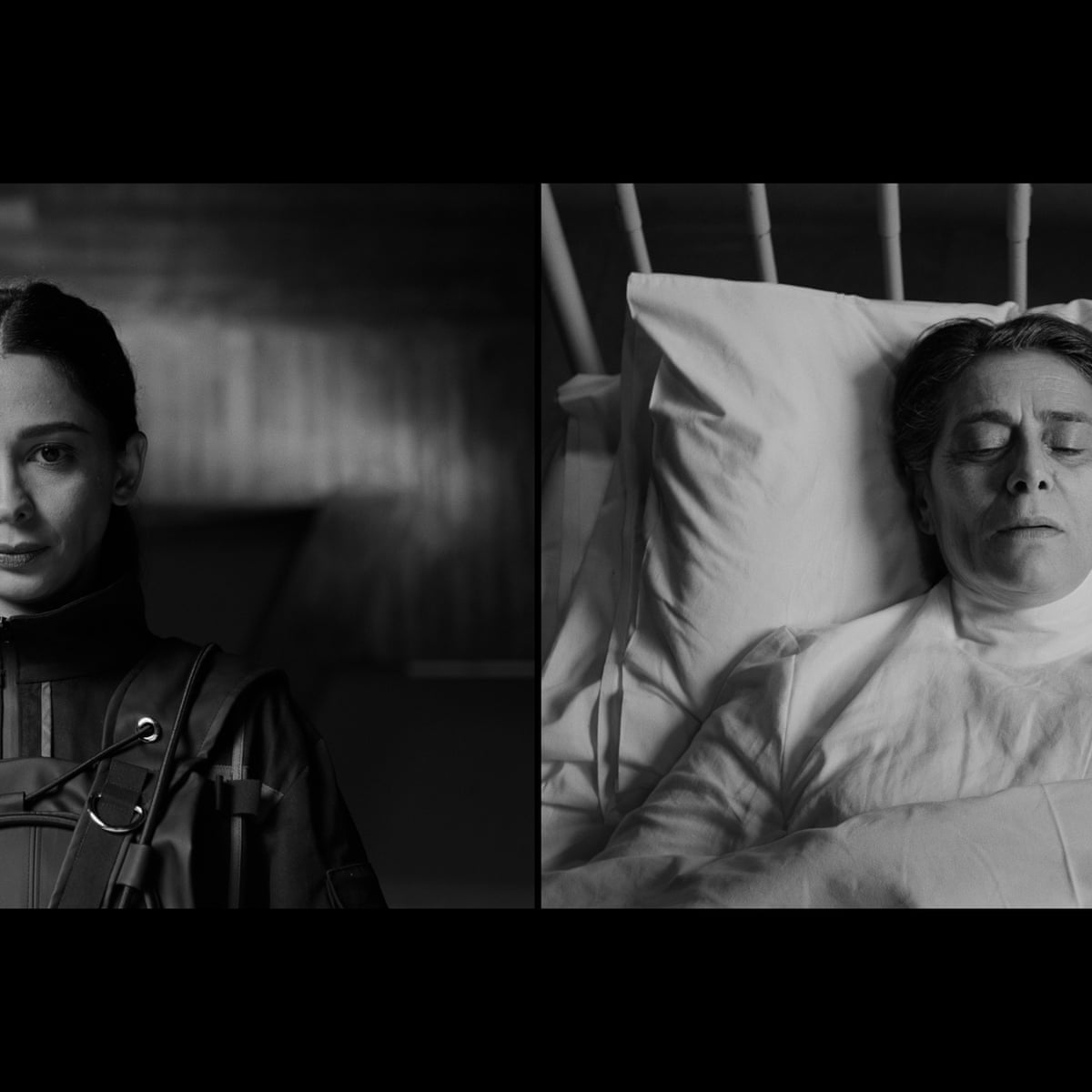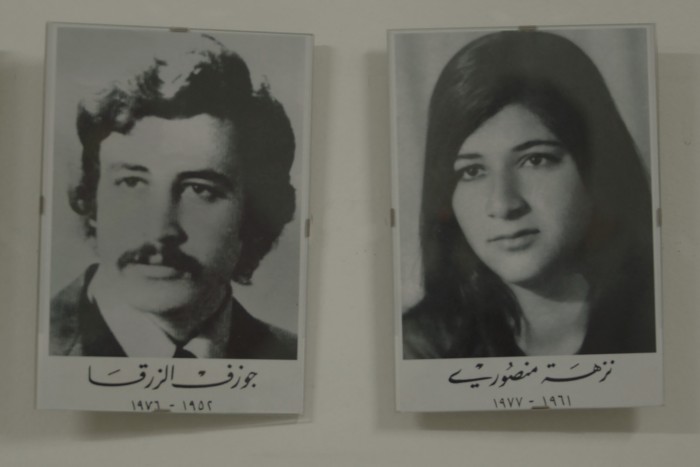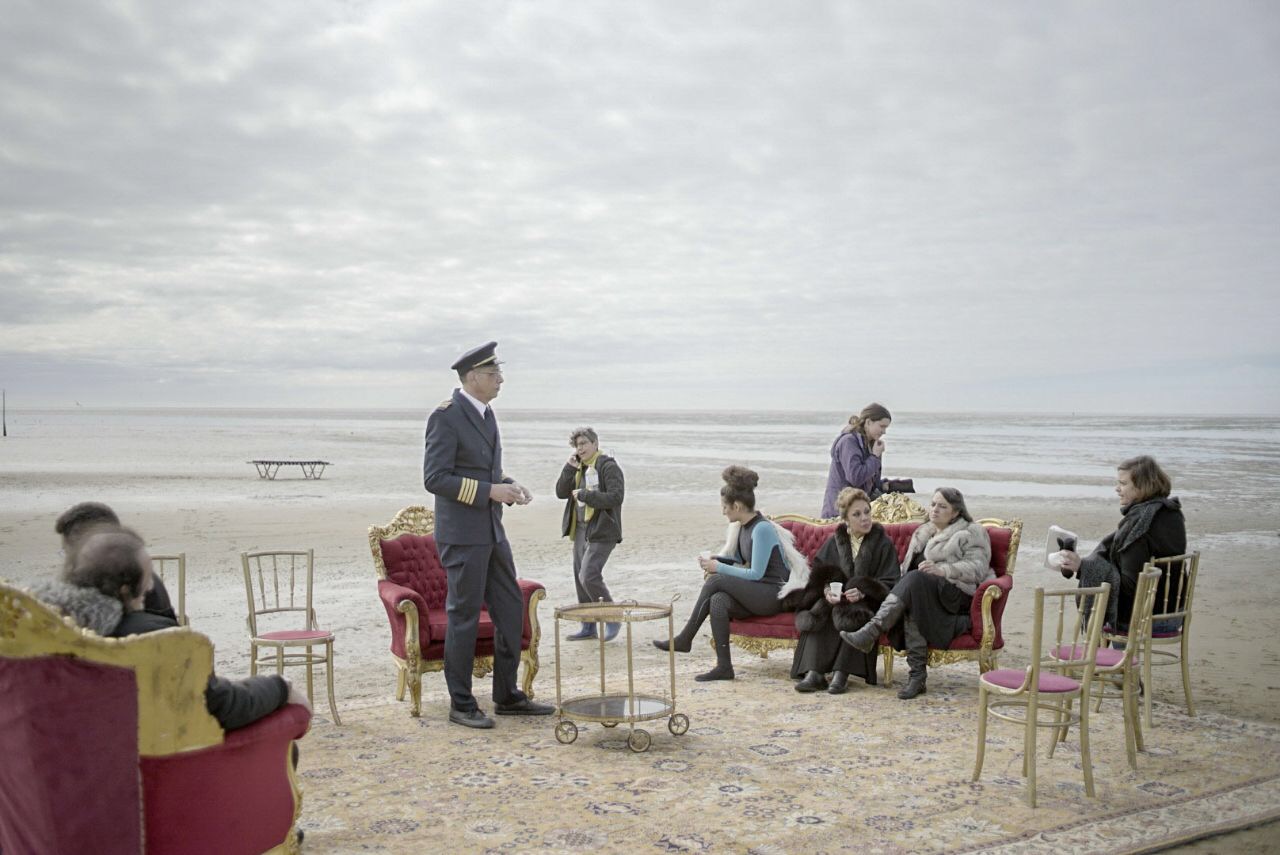 Our Picks from Shasha Movie’s Monthly Programme
Our Picks from Shasha Movie’s Monthly Programme


To celebrate the opening of Shasha Movies, world’s first streaming platform for SWANA cinema, we picked four films from their March programme.
In Vitro (2019)
Directed by Palestinian artist and filmmaker Larissa Sansour and Danish Søren Lind, the film In Vitro questions perceptions of national iconography and representation by using the genre of science fiction to “investigate the notions of memory, trauma, identity and belonging” (Heirloom, 2019), whilst also offering space to consider potential, non-realized, post-apocalyptic futures. Set in Bethlehem, Sansour portrays the city post an ecological disaster that has propelled its inhabitants into the underground. Two women, Dunia and Alia, reimagine the concept of belonging in a reality void of any withstanding constructs. The movie prompts us to ask fundamental questions on the topics of belonging and heritage. In the words of Nat Muller, what do these narratives even mean when all has been destroyed? Does it make sense to cling to remnants of the past and produce its myths and constructs?


Mussolini’s Sister (2018)
In Juna Suelimean’s Mussolini’s Sister, we are invited into the mind of her grandmother Hiam, an elderly Palestinian woman from Nazareth. Different themes are explored via the retelling of Hiam’s past and present experiences, through the perspective of her granddaughter Sueliman. As the documentary unfolds, we are brought into the truth’s of Hiam. Within the realms of her world, Hiam explores themes of marriage, love and solitude as rendered via her granddaughter’s lens. Altering continuously between scenes from past and present memories, we are able to see life through Haim’s eyes, rather than searching for absolute truths from her memories.


A Feeling Greater Than Love (2017)
Mary Jirmanus Saba’s movie A Feeling Greater Than Love is based on the 1970s Tobacco and Ghandour factory strikes, which were organised by a militant labour party in Lebanon. The movie explores what could have been a successful Lebanese revolution, had it not been suppressed due to unresolvable ideological divisions from within; and divisions accentuated by the civil war that followed. Divisions that seem to resist the debris of time and war, regardless of shared need for transformation. Although the strikes were monumental, they seem to have been erased from Lebanon’s collective memory. In the movie’s prologue Saba asks “why keep walking along the civil war’s front lines? Has the past confined our movement?”. The movie attempts to compare past and present, maybe singling to us how history might be repeating itself as well as highlighting the intersection of revolution and cinema. By focusing on the workers’ struggle, the movie is able to link revolution to cinema.


Before I Forget (2018)
Mariam Mekiwi’s Before I Forget presents a science-fiction story set in an indistinct coastal region, somewhere between land and sea, above and below water. El Captain disappears, one of his disciples takes a journey in the ocean to cut off the internet cable, the water level is rising, an amphibian woman appears at the shore looking for her mother, and the memories of two women in a ward intertwine. Scientist Dr. Sharaf is trying to congregate all of them – the members of the secret society of amphibians – in an attempt to save the world. We are left to wonder whether Mekiwi offers us a dystopian fairytale or a work of science fiction whilst she explores some of humanity’s most fundamental topics: memory, loss, and death.


Make sure to check out other films at Shasha Movie’s Website.
Featured image: Before I Forget/ Mariam Mekiwi


 Our Picks from Shasha Movie’s Monthly Programme
Our Picks from Shasha Movie’s Monthly Programme 

